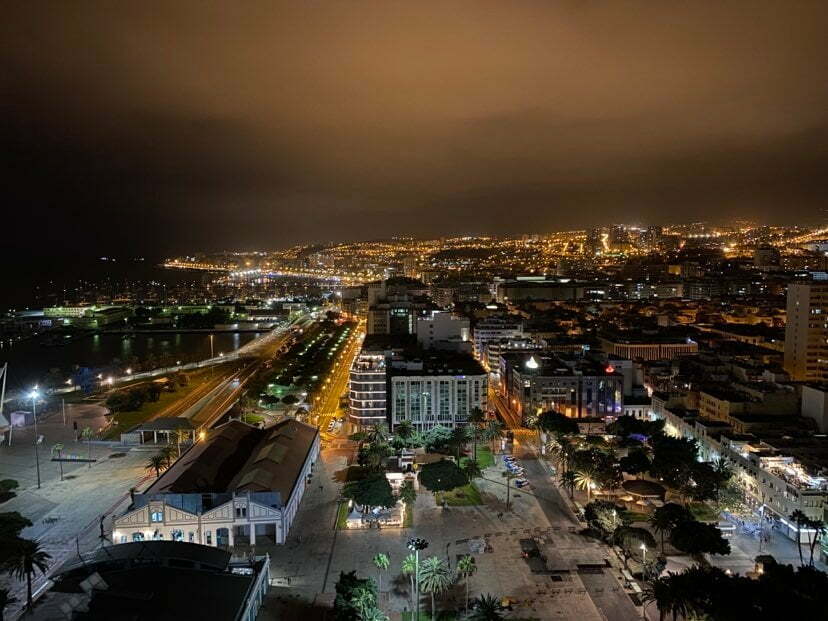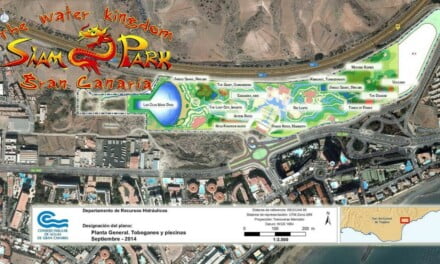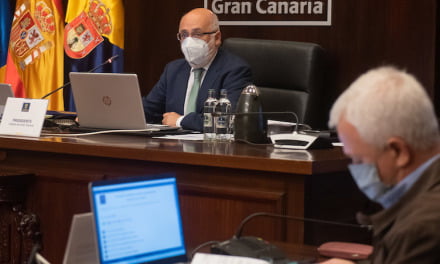The countdown has begun to power-saving blackouts, in shops and institutional buildings, set to be in force at least until November 1, 2023. The measures, decreed last week by Spain’s central government form part of the package of measures on energy saving and efficiency. The open commercial areas of Las Palmas de Gran Canaria have reportedly reacted with skepticism, waiting to see how it will affect business and consumption; however, the sector recognises that inflation and the rise in electricity bills are beginning to complicate the accounts for everyone.
This weekend just passed will be the last until November, of next year, that shops and businesses are allowed to keep their windows lit through the night. All businesses must turn off their window lights after 10 p.m., according to Royal Decree-Law 14/2022 published in the Official State Gazette (BOE) on August 2. The measure comes into force on Wednesday, August 10, and will affect all businesses, premises and public buildings that do not have occupants inside. Another controversial measure urges locals to keep their doors closed to avoid energy waste and air conditioning escaping into the street.
Failure to comply with these measures, such as not turning off shop windows at night or lowering the temperature more than allowed, could lead to a minor infraction based on the sanctioning regime of Law 21/1992 on Industry. In this case, fines could be up to €60,000. More serious infractions could amount to €6 million and very serious to €100 million, though few businesses are likely to be charged with anything so serious.
The four principal measures applied in the plan, limits for heating, closing doors, turning off night lighting, and revision of hot water boilers), are not all new, most have already been in force since 2009, including temperature limits and closing doors. Which buildings are affected is not new either.
The 2009 Government, of Rodríguez Zapatero, established an obligation (as part of its 2008-2011 energy saving and efficiency plan) to keep heating, in commercial and institutional buildings, to no more than 21ºC during the winter, and an air conditioning minimum ambient limit of 27º during the summertime, stipulating the need for “adequate” closing of doors, to avoid heat leaks. The objective of the measures was to reduce oil imports into Spain by 10%, in the aftermath of the global downturn. The current Spanish Government, of Pedro Sánchez, has now reduced those limits from 21º to 19º for heating, and from 27º to 26º for air conditioning, while including the requirements for sufficient closing of doors to even those that use renewable energy for air conditioning.
The nominal temperature limits are set on public buildings, work centres and shops, and will be mandatory.
Any buildings or premises intended for the following uses: administrative, commercial (shops, supermarkets, department stores, shopping centres and similar), cultural (theatres, cinemas, auditoriums, congress centres, exhibition halls and the like), “public shows and recreational activities”, bars, restaurants and cafes and train or bus stations and airports. While it affects only shop windows and public buildings, it is not extended to monuments.
In no case should these measures affect other premises, such as gyms, hairdressers or nightclubs, nor hotel rooms, much less hospitals or nursing homes (which are protected even in the current emergency plan in case power cuts have to be made or to the gas supply). And, where they are applied, it will be only so long as the conditions of work safety can be guaranteed, for example, the air conditioning of a restaurant kitchen. This is not meant to be an obstacle, repeats Third Vice President and Minister for the Ecological Transition, Teresa Ribera, saying once again that anyone can try to save as much energy as possible.
Hospitals, educational and care centres do not have to comply with the energy saving plan.
Lights in buildings are to be shut off after 10 p.m. and the regulation of heating and air conditioning will come into force as of Tuesday, August 9. Signage in the establishments is required to inform members of the public about the application of these measures, and must be displayed within a month: as of September 2. To be able to ensure that buildings have adequate door closing systems, the government have given a deadline until September 30, although this measure has in fact been in force since 2009. A note from the Ministry for Ecological Transition clarifies that the novelty is that this rule now extends to establishments that use “renewable energy for air conditioning”.
Those in charge of monitoring compliance will be the regional autonomous communities themselves, something that they are supposed to already do today, with current measures such as closing doors and temperature limits in establishments.
In the Government’s Royal Decree Law, published Tuesday, expressly included is that in case of non-compliance with these obligations, infractions of Industry Law will be applied, with fines ranging from €60,000 to €100 million, depending on the severity of non-compliance. At most, a breach would mean a minor offence and, based on the principle of proportionality (if it was intentional, for how long, the damage it causes, etc.) the amount would be very likely much lower than €60,000 euros, according to sources from the Ministry for Transition. Ecological.
Those tasked with surveillance will continue to be the regional autonomous communities, so the penalty applied could also depend on the degree of control each region has within its policies.










